
A password protected Student Photo Directory for the 2021-2022 academic year can be found HERE.
Hussein Saghir, 2020 Master of Public Health in Health Management Graduate 2020
Hussein Saghir was a 2019-20 Commonwealth Fund Fellow in Minority Health Policy, and recently completed the MPH-45 as part of his fellowship in May 2020. Prior to attending Harvard, Hussein worked as Associate Program Director and Assistant Professor of Family Medicine at the Michigan State University
College of Human Medicine/McLaren Flint Family Medicine Residency Program in Flint, Michigan. He trained and worked in Flint at the height of the Flint Water Crisis, which motivated him to champion social, economic, and health equity, hence why he is pursuing the fellowship in Minority Health Policy. He has also worked as a Primary Care Sports Medicine Physician in the greater Flint area, a position in which he provided pro-bono sports physicals to under-served students and athletes participating in the Special Olympics.
He obtained his medical degree from Michigan State University College of Osteopathic Medicine and completed his residency training in Family Medicine at Michigan State University/Genesys Regional Medical Center. Hussein went on to complete his Sports Medicine Fellowship at Wayne State University School of Medicine/Detroit Medical Center where he provided coverage to Detroit’s professional sports teams. After his fellowship, he returned to Flint to serve as the team physician for the Flint Firebirds Hockey team and is an active member of the Physician Advisory Board to the Genesee Health Plan, an insurance plan that provides coverage to uninsured residents of Genesee County. In addition to his previous work experience in Flint, Hussein’s participation as a Commonwealth Fund Fellow has solidified his commitment to a career in public health and health management.
During his time at Harvard, Hussein worked on a variety of public health issues about which he is passionate, including addressing food insecurity among his peers at the Harvard Chan School and the structural inequities pervasive within our health care system. He worked on a startup in the Harvard Innovation Lab with the aim of addressing the opioid crisis by utilizing telehealth and digital innovation. He also served as the Vice President of Communications of the Harvard Chan Student Association and used his platform to organize educational events and other school-wide endeavors that support students’ academic and social needs. Hussein completed a practicum that he designed in partnership with health care leaders in Michigan. It involves developing an advocacy and health policy curriculum for trainees in family medicine. After experiencing first-hand how poor public policy can devastate an entire community during the Flint Water Crisis, Hussein helped to develop curriculum that can be used to train residents to become conscientious and socially cognizant primary care physicians nationwide. After completing his fellowship at Harvard, Hussein plans to continue his work in graduate medical education. He also hopes to harness his training in health management and public health leadership to innovate health care systems to improve the health of historically marginalized communities.
Kelley Butler, 2019 Master of Public Health in Health Policy Graduate
Kelley Butler is a medical student at the University of California, Irvine School of Medicine. Hailing from Los Angeles, Kelley has committed herself to serving marginalized populations in Southern California. She is an active member of various organizations dedicated to advocating on behalf of students and professionals of color, people suffering from substance abuse disorders and addiction, the homeless, and others. On her medical campus, Kelley is known for her work in social justice, health advocacy and initiatives focused on minority students.
Kelley graduated from Howard University in 2015 with a passion for serving communities without access to health insurance, quality healthcare or education. As such, she’s dedicated herself to educating and serving both local and international communities in need. She’s traveled to both Panama and Kenya on medical missions thus far and looks forward to continuing to serve all mankind. Kelley is currently pursuing her Masters of Public Health at the Harvard TH Chan School of Public Health in Health Policy.
Kelley’s research interests originally led her in the direction of the global health track, but in her third year of medical school she realized that there were many domestic issues she could help solve. For example, the decisions about health care that physicians are allowed to make, such as what to prescribe and how much, how patients pay for services, and other decisions that occur on a daily basis, are not actually decided by the physician, but are dictated by policy at a systems level. Kelley’s interest in shaping these policies led her to the Health Policy track in HPM. Under the direction of Amy Rosenthal, Kelley is working at a health start-up called DynamiCare Health. At DynamiCare Health, Kelley and her team are focusing on developing an app platform that will serve as a road map for formerly incarcerated citizens to navigate the addiction treatment and recovery resources that are available to them.
In the near future, Kelley would like to work in a leadership position in organized medicine. She also believes that physicians should be equipped with knowledge of the system level processes that she has learned while at the Harvard Chan School, and she would like to bring some of these lessons back to California and teach at her medical school. In the longer term, Kelley has an interest in running for office, and we are looking forward to seeing her name on a ballot someday.
Eileen Mariano, 2019 Master of Public Health in Health Management Graduate

Eileen Mariano is an MPH 65 Health Management student getting ready to graduate this May. Before beginning her studies at the Harvard Chan School, Eileen worked at a nonprofit that provides residential psychology services to children. Her job at this nonprofit was to work with kids who had attempted suicide and to maintain physical safety and deliver therapeutic programmatic activities. Many people who worked with Eileen became social workers or therapists, but Eileen saw her path going in a different direction. She realized that without strong management skills and knowledge, the important work of the social workers and therapists could not be realized or harnessed to its full potential. Eileen wanted to develop the leadership skills necessary to fill that need.
For her practicum, Eileen works with a political advocacy organization that strives to push legislation in California to protect transition-aged youth. Previously, in California, foster youth could not claim state income tax credit if they did not have a dependent. During her practicum, the legislature approved a new rule that made it legal for transition aged youth -18-25 years old- to claim that state income tax credit without having a dependent. Her organization was a key player advocating for this change. Eileen was charged with sharing this new legislation with social workers through webinars, publications, and other educational programs.
While at the Harvard Chan School, Eileen took a course on the subject of human trafficking that she describes as “life changing”.
“I knew what that was, but I learned about how integrated trafficking is in all of the projects we are faced with and the significance and magnitude of the situation.”
After she graduates, Eileen would like to work in a program management role for a nonprofit or a foundation that is tackling human trafficking, specifically with youth, tying in her experiences with social services and her coursework at the Harvard Chan School.
Angel Rosario, 2019 Master of Public Health in Health Management Graduate

Angel Rosario was born and raised in Harlem, NYC to parents from the Dominican Republic. During Angel’s childhood he witnessed and experienced social disparities that eventually led him to pursue a career in medicine and public health aimed at changing the health care landscape in the United States and globally.
Currently, Angel is a third-year medical student at the University of California San Francisco and is taking a gap year to obtain his MPH from the Harvard Chan School. The idea of going into medicine first presented itself on a trip that Angel took to Uganda after graduating from SUNY: Buffalo in 2009 with a BS in Biomedical Sciences and Psychology. While Angel was in Uganda he immediately saw the role that the clinicians and medical community played in public health issues in order to treat disease, and he wanted to be a part of a medical community with a public health mindset.
Angel believes that learning about public health systems is a critical connection to his medical degree. After finishing both degrees, he plans to work in the public sector and aims to connect the issues of health, health care, and social disparities. While he’s at the Harvard Chan School in the Health Management program, his goal is to acquire and strengthen leadership skills to allow him to be the change maker that he wants to be in the future for health systems. Currently, he is a Zuckerman Fellow at the Center for Public Leadership at the Harvard Kennedy School, which is a fellowship for students who are in medical or law school and are working on another degree at the same time. Throughout his studies at UCSF and the Chan School, his fellowship, and his work abroad, Angel has seen first-hand the importance of networking.
“We need to think about many different disciplines in order to get any sort of public health work done. We need to be talking to politicians, lawyers, business people, and that is what will change the health care landscape.”
For his practicum, Angel is working with Dr. Kee Park, a global surgery scholar in the program in global surgery and social change at Harvard Medical School on a project in Pakistan. With another student, Angel is creating a case report on how the private sector can invest in the public sector to eliminate health disparities. The project is being looked at especially through a surgical lens, but Angel’s hope is that the results they achieve through the project will be scalable, and that it can help low and middle income countries improve the delivery of health care services to the poor. Angel specifically chose this project because he believes these results will be a good illustration of how public and private sector can work together to improve people’s lives.
Christina Wu, 2019 Master of Public Health in Health Policy Graduate

My grandmother has always been a powerful presence in my life. A former college professor who emigrated from China in 1989 to take care of my sister and me, my grandmother never learned to speak English or drive a car. As a child, I watched her navigate through unfamiliar social welfare systems and suburban American streets through a combination of ingenuity, sheer persistence, and the kindness of strangers. Now, 30 years later, I have the privilege of helping my grandmother navigate the range of home and community-based services available to her as she ages in place. I plan to pursue a career in improving the health care system for her and the other aging men and women in her generation. I intend to contribute to the innovations that have emerged in recent decades to address challenges in aging, and the Master of Public Health in Health Policy at the Harvard T.H. Chan School of Public Health is giving me the necessary skills and experiences to continue on this path.
I first began to focus on aging during the fall of 2014, when I went to Hangzhou, China with a Fulbright research grant to study attitudes towards Alzheimer’s disease and dementia and services available to persons with dementia and their families. I had always been interested in aging and the stigmas associated with dementia. China, in light of new research revealing a significant increase in dementia prevalence, was an ideal place for me to study these issues.
Originally, I had hoped to speak with family members coping with elderly relatives afflicted with dementia, and I thought that nursing homes were the natural place to start. However, my plans were quickly thwarted. I soon learned that most nursing homes in Hangzhou refuse to admit elderly individuals with suspected dementia, leaving their families with no choice but to care for them at home. When I looked to the local government for assistance in identifying respondents, I was struck by the lack of coordination between health and social service systems. Ultimately, I managed to retrieve annual exam data from primary care providers and pieced these together with residential records. It became clear that as a result of this fragmentation, community-dwelling residents with dementia and their families are not receiving the services and supports they desperately need. The Chinese government is grappling with an aging population unprecedented in size, and it lacks the critical infrastructure to support it.
My Fulbright research instilled in me the importance of building a system that coordinates a person-centered aging experience across health and social sectors and between formal and informal support systems. Creating such a system requires combining an in-depth understanding of the lived experience of aging individuals and their families with the collection of data and quality metrics to drive improvement. As I wrapped up my Fulbright fellowship, I decided to study the long-term services and supports (LTSS) system in the United States, which is more advanced than China’s.
For the next few years, I worked as a Senior Research Analyst with the Lewin Group’s Center for Aging and Disability Policy in Washington, D.C. Our work spanned the spectrum of the policy development process, from strategy to implementation and program evaluation. This experience taught me so much about what has been successful in aging policy, and—perhaps just as importantly—where there is room for growth. Indeed, successful innovation must be coupled with thoughtful and responsive implementation as well as rigorous evaluation of health, quality, and cost outcomes. While I am impressed with the commitment of the federal and state governments to this kind of approach to improving health care, there is more work to be done.
I decided to come to the Department of Health Policy & Management at Harvard T.H. Chan School of Public Health to gain a broader view of the health care system as a whole. As I was working on new pilot initiatives at the Lewin Group, I felt I needed a more comprehensive understanding of the history of the health care system and the broader landscape into which my work fit. I also wanted to hone my skills in policy research and analysis. The HPM department, with so many leading experts of health policy research and practice, will provide me with the training I need to be an effective health policy professional. After finishing my Master of Public Health degree, I hope to work for the government at the federal or state level, contributing to the design of an effective and sustainable LTSS system. This would involve scaling up successful models and finding ways to align incentives to finance them.
I am thankful for the love and sacrifice of my grandmother, and I feel responsible for the aging men and women of her generation. The skills and content knowledge I am obtaining from the MPH degree will help support me in my goal of improving health care and health in general for people who are aging so that they can – in the words of Dr. Atul Gawande – “keep shaping the story of their life in the world.”

Beth Anne Lopez, 2018 Master of Public Health in Health Policy Graduate
Prior to beginning her studies, she worked in the Cambodian countryside for four years. There she served as a consultant for the impact evaluation of a nutrition program. This work was part of a $57M USAID HARVEST project for which she did ethnographic research and interviewed child caretakers in remote parts of the country. She also served in the Peace Corps (2012 – 2014) and started an agribusiness initiative for low-income farmers in Kamping Puoy.
Her field experiences in Cambodia led her to the Harvard Chan School, specifically the health policy track. She is interested in combining the innovation and efficiency of the private sector with the health policy objectives of governments in Asia.
As a part of her summer practicum, Beth worked at the Singapore-based health tech startup mClinica. In under 3 months, she created a partnership between mClinica and the Ministry of Health and Pharmacist Association of Cambodia, and led the launch of SwipeRx, an application software that provides a social network for pharmacy professionals. SwipeRx features a newsfeed that contains policy updates from the Ministry of Health and other regulatory bodies, updates and events from pharmaceutical associations and non-government organizations, a jobs board, and educational modules. Users can ask anonymous questions on the newsfeed and generate crowdsourced answers. This is the first app for pharmacy education in the country, and it is free for download from the Google Play and Apple stores. Beth hopes to continue supporting companies dedicated to having a positive impact following graduation.
At Harvard Chan, she was a co-founder of the Latinos in Public Health Student Organization and Harvard Chan Association of Southeast Asian Nations (ASEAN) Students. She also co-organized the “Future of Health in Southeast Asia” conference for which she invited speakers from the Asian Development Bank, USAID, and Harvard Divinity School to talk about health and policy issues that will affect the lives of millions in the ASEAN region in years to come.
After graduation, Beth aims to work on projects that improve health, governance, and economic prospects for people in frontier and emerging markets in Asia.
Linh Nguyen, 2018 Master of Public Health in Health Management Graduate
Linh graduated from the University of Maryland, College Park with a degree in Management and a minor in Asian American Studies. For four years, Linh worked for a nonprofit organization as a program coordinator and executive committee member, leading strategy, research, and project development. Several of the projects he has worked on include SMASH-B, a hepatitis B screening, education, and vaccination program, a women’s health initiative, and a clinic rehabilitation project. Linh has led projects in Vietnam to aid low resource communities and victims of natural disasters with food, clean water, shelter, and medical care. He has also assisted medical centers, which shelter victims of Agent Orange, children with mental disabilities, and HIV/AIDS patients, to operate more efficiently. Prior to coming to Harvard Chan, Linh completed a pre-medicine program at the University of Pennsylvania, where he conducted research at the Children’s Hospital of Philadelphia helping to improve nutritional counseling for refugee children in Philadelphia.
Linh is passionate about resolving healthcare challenges at the systems level. Linh hopes to combine clinical expertise with public health frameworks and business tools to improve healthcare delivery and quality of care through health systems innovations. At the Harvard Chan School, Linh was a member of the Leadership Team for HEAL (Health, Equity, and Leadership). In his role as Workshop Coordinator, Linh worked with a team to design and organize workshops for HEAL’s annual conference. Linh was also elected as President of the HSPH Student Association for the 2017-2018 academic year.
Chelsea Rice, 2018 MPH 45 Health Policy Degree Graduate
Chelsea Rice has a health communication and journalism background focusing on consumer health and breaking news. As she moved further into her career, she wanted to understand how a breaking news issue in health care becomes policy. “I wanted to understand the issue of the day, and then how it was being rolled out in a physician’s office, and on the federal level.” For Chelsea, pursuing a degree in health policy was a natural fit.
Originally from Athens, Georgia, Chelsea moved up to Boston to attend Boston University’s top-ranked journalism program, began writing for Minority Nurse Magazine, and later wrote for Health Leaders Media. Chelsea has been a member of the Association of Healthcare Journalists since 2012 and learned of a job opening at the Boston Globe for a health producer at one of the Association’s conferences. “I thought I had found my dream job. I planned to work there as long as they would have me.” At the Globe, Chelsea was predominantly writing pieces in the consumer health space until she became the lead health reporter at Boston.com. She wrote about everything from nutrition, to medical marijuana, to Ebola and any health-related breaking news happening in Boston at the time.
Unfortunately, the Boston Globe ended up laying off a large portion of their workforce, leading Chelsea to write freelance before landing at athenahealth where she wrote for a publication called athenaInsight. The goal of athenaInsight is to publish data collected from electronic medical records in a transparent way. “There is huge potential for what you can do in public health with EHR data.” With this data, athenaInsight is able to identify top performers across quality measures. For example, athenaInsight can see which health care organizations have the biggest reductions in opioid prescriptions and then contact those institutions to find out what they are doing to achieve this. During the government shut down in October of 2013, the CDC turned to athenaInsight to track the flu epidemic through the EHR data.
Combining her experiences, Chelsea began to think more broadly about health communication and policy. She applied to the Harvard Chan School because she saw a need to communicate innovative health research through the right channels and on a larger scale. At the Chan School, Chelsea is working on a strategic plan under the direction of Amy Rosenthal, Health Care for All. She is interviewing people in different government and community organizations across the state and integrating strategic plans based on feedback from stakeholders and colleagues.
The MPH program at the Chan School has inspired Chelsea to return to health reporting at news organizations such as STAT, Politico, or Keiser. She hopes to dig into what she’s learned here at the Chan School, and combined with her previous experience, work in non-profit communication and media strategy.
Sunny Stirewalt, 2018 Master of Public Health in Health Management Graduate
Sunny graduated from the University of Pennsylvania in 2014 where she majored in Health and Societies, with a concentration in Disease and Society. She was also a four year Division I varsity athlete. She came to Harvard Chan to pursue a MPH in Health Management. She is specifically interested in non-profit management. Currently, Sunny is a Roxbury Prep Tutor where she tutors middle-school students in sciences.
Prior to attending Harvard Chan, Sunny was a development fellow at Gardens for Health International (GHI). Based in Cambridge, GHI’s mission is to provide sustainable agricultural solutions to combat childhood malnutrition in Rwanda. Gardens for Health partners with health centers to integrate agricultural support and comprehensive health education into the clinical treatment of malnutrition.
Temilola Akinola, M.B.B.S., 2017 Master of Public Health in Health Management Graduate
I practiced as a general physician in Lagos, Nigeria for three years before I embarked on my program at the Harvard Chan School and I am currently applying to medical residency programs. For a short period, I coordinated health care administrative activities at a medical facility in Lagos where I functioned as a link between staff and senior level management. I have been actively involved in Medical Outreach programs in various parts of Nigeria. I am interested in improving quality of care measurements and evaluation of health care processes to improve outcome. While at the Harvard Chan School, Temilola served on the Student Advisory Committee for the Office of Alumni and Career Advancement and was a member of the Public Health Leadership lab.
After graduation, she plans to continue practicing clinically, while simultaneously building a career that focuses on improving the quality/performance and processes of health care delivery especially in low resource settings.
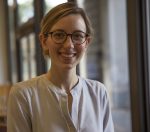
Hannah Herzig, MD, 2017 Master of Public Health in Health Policy Graduate
Hannah is a physician from Germany, a Master of Public Health candidate and president of the Harvard Chan Afroeurasian Affairs Student Forum.
She graduated from the Medical School of the University of Cologne, where she studied, supported by the German Academic Scholarship Foundation, and conducted research on skin disease and the extracellular matrix. Her main focus in public health is on universal coverage systems in middle-income and high-income countries, and improving quality of health care delivery, especially in neurology. This interest brought her to Korea and the United Kingdom, where she completed her internship in general surgery and neurology, as well as to the London School of Economics, where she spent a summer to learn more about policy making.
While at the Harvard Chan School, Hannah focused on learning more about approaches to implement innovations and changes in policy, payment models, policy planning, and the U.S. health care system.

Abraar Karan, MD, 2017 Master of Public Health in Health Policy Graduate (Public Health Leadership Concentration)
Abraar is a recent graduate of the UCLA David Geffen School of Medicine where he served as Student Body President. His primary area of interest is in how to build health systems that are ethically robust and inclusive of complex marginalized populations. This question has led him around the world to learn from communities struggling to attain high-quality healthcare in Sub-Saharan Africa (Uganda, Mozambique), Asia (India, Thailand), and Latin America (Mexico, Honduras, Nicaragua, Dominican Republic). From his work, Abraar has written numerous academic and journalism pieces on global health issues, and published his book, Protecting the Health of the Poor: Social Movements in the South in December 2015.
While at the Harvard Chan School, he was a member of the Chan/Kennedy School Center for Public Leadership Walker Study Group, the Voices in Leadership program, and the Public Health Leadership Lab. He is currently launching his latest project, Nicole Kozloff, MD, Master of Science Graduate (SM1-Health Policy & Management), HPM
Nicole is a child and adolescent psychiatrist from Toronto, Canada completing an SM1 in Health Policy and Management. She is interested in providing, studying and improving mental health services for youth transitioning from the pediatric to the adult health care system, with a focus on young people from marginalized populations. While studying at Harvard Chan, she conducted research as a postdoctoral fellow at the Centre for Research on Inner City Health at St. Michael’s Hospital in Toronto. Her main project examined how Housing First (an evidence-based intervention that provides immediate access to housing and psychosocial services) can be applied to homeless youth with mental illness. Nicole completed her BA at McGill University in Montreal, medical school at Queen’s University in Kingston, and general and child and adolescent psychiatry residencies at the University of Toronto.

Faith Makka, MSN – 2017 Master of Public Health in Health Management Graduate
Faith is a nurse practitioner currently pursuing her Masters in Public Health with a concentration in Health Management. She graduated from the University of Florida with a dual bachelors in health science and nursing. She was selected to be a Robert W. Woodruff Fellow at Emory University where she completed her nurse practitioner training and obtained a masters degree. She has done some work with the Comprehensive Rural Health Project (CRHP) in rural India studying community-based models for sustainable health care. She has spent the past few years working in community hospitals in rural New Mexico and Texas. She is interested in health systems strengthening, primarily in rural, resource-poor areas and developing countries. She currently plans to complete an administrative fellowship as a Deland Fellow at Brigham & Women’s Hospital as she transitions into the healthcare management arena.
William Seligman, MD, 2017 Master of Public Health in Health Policy Graduate
William graduated from the University of Oxford Medical School in 2014 and has been working as a physician in the south-west of England since then. Clinically, William’s interests are in critical care medicine and major trauma. He was previously Co-Chair of the British Medical Association’s Medical Students’ Committee and worked with the government on a range of issues. With Louisianan roots (his mother is from New Orleans), William has a longstanding interest in U.S. health policy and interned in the United States Senate during a summer break from medical school. He has subsequently spent some time experiencing health policy decision-making at the highest level in the U.K. with the Government’s Chief Medical Officer.
William hopes to use skills and knowledge developed during his year at the Harvard Chan School in the future in a joint clinical and policy role in the United Kingdom.
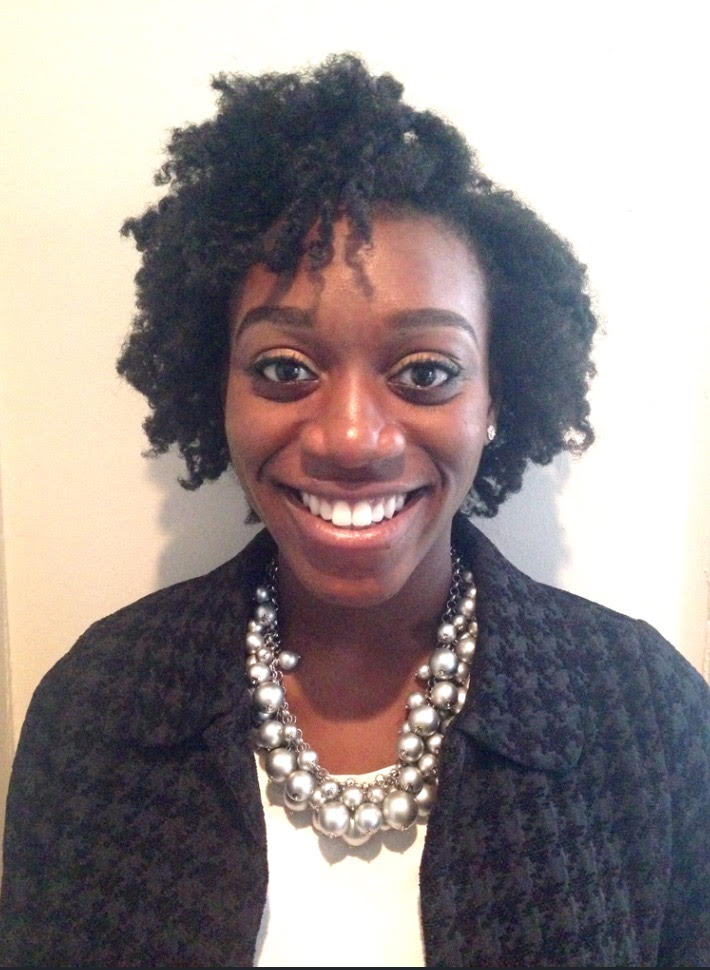
Jennifer Addo, 2016 Master of Public Health Graduate, HPM
Jennifer is a rising 4th year medical student at the Indiana University School of Medicine. While at Indiana University, she was awarded the IUSOM Northwest Professionalism Award which is given to a student who represents the medical school with exemplary professionalism skills, has worked as an instructor in the gross anatomy laboratory for paramedics and faculty in continuing medical education sessions, and a tutor for first year medical students in the neurology and neuroanatomy course. Internationally, Jennifer completed a study abroad program in Ghana, performing an observational study on hypertension in pregnancy. In El Salvador, she created an Institutional Review Board to look for ways to improve health outcomes, focusing on women’s health and maternal care. As a future obstetrician and gynecologist, Jennifer wants to use her medical and public health training to promote health policies and culturally sensitive medical protocols for socially marginalized, under-served communities.
Jennifer has a bachelor’s degree in brain, behavior, & cognitive science from the University of Michigan and will receive a master’s in public health from the Harvard T.H. Chan School of Public Health.
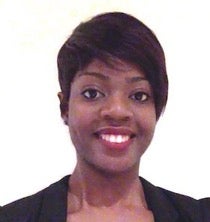
Oluwakemi (Kemi) Okunade, BMedSci, BMBS, 2016 Master of Public Health Graduate (Health Policy Track), HPM
Kemi is a 2016 MPH candidate in Health Policy at the Harvard T.H. Chan School of Public Health. Prior to coming to Harvard Chan, Kemi lived in the U.K. where she completed her medical training in General Practice. In her spare time, she is involved with charity work in Nigeria working on projects to provide access to healthcare in impoverished rural communities as well as projects that focus on empowering young people.

Jason K Sarfo-Annin, MA (Oxon), BM, BCh, FRSA, 2016 Master of Public Health Graduate (Health Management Track), HPM
Jason is a physician and Fulbright Scholar from the United Kingdom. He is an MPH student in the Health Management track and has experience in healthcare systems outside of the UK, including work he did for the Ministry of Health in Ghana. Jason hopes to better understand how universal healthcare, free at the point of need, can be better organised to become sustainable in both high and low resource countries.
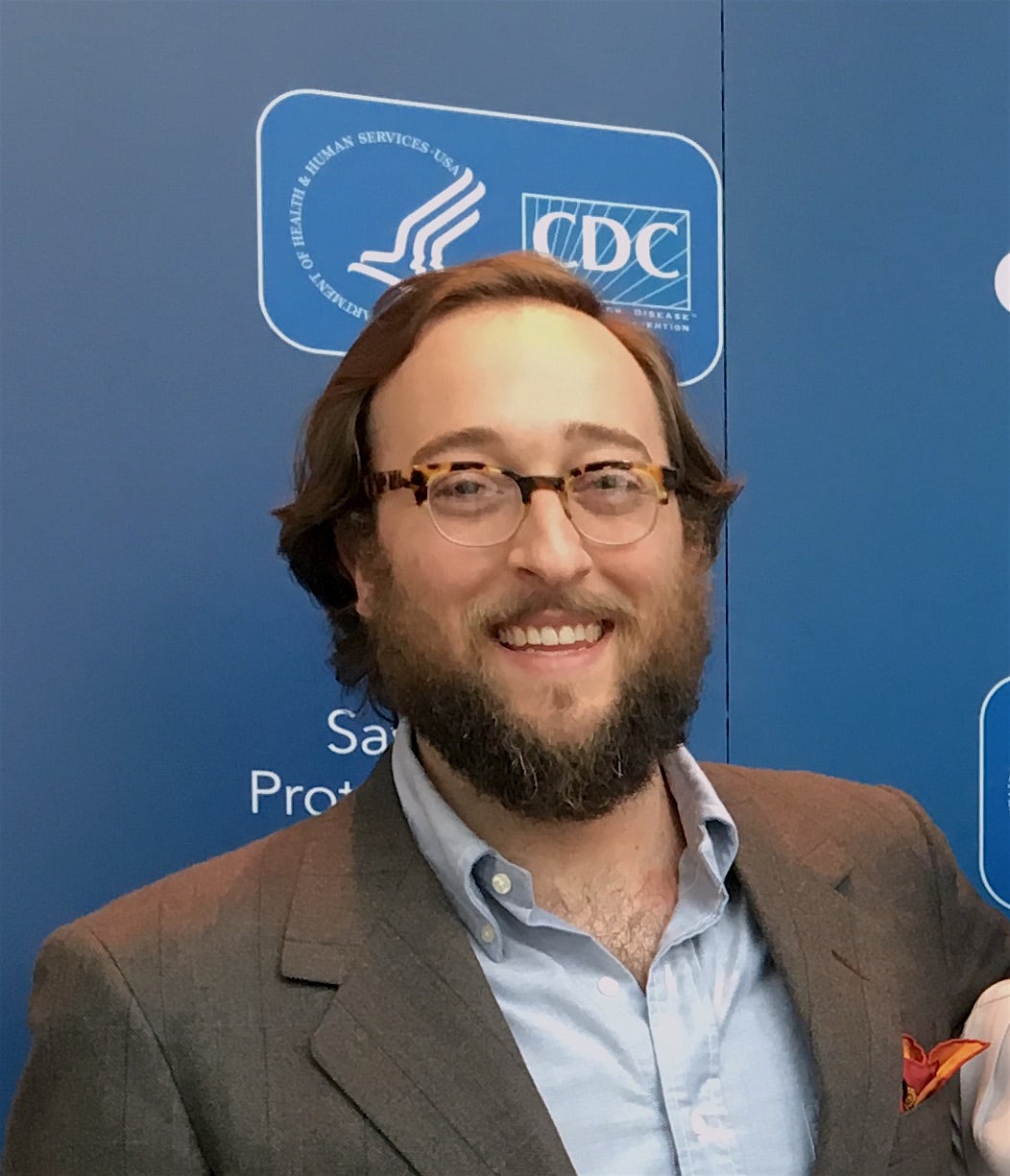
Henry (Hank) Rosen, 2016 Master of Science Graduate (SM2-Health Policy Track), HPM
Henry “Hank” Rosen, originally from Montana, is completing his Master of Science in Public Health with a concentration in Health Policy.
Hank came to the Harvard T.H. Chan School of Public Health to learn about social determinants of health and the underlying policy and systemic drivers of health disparities and inequities. Outside the classroom, he has worked on political strategy and government affairs projects at the New York City Department of Health and Mental Hygiene, process improvement projects in billing-related initiatives at the Boston Children’s Hospital, and opioid addiction and misuse policy at the Massachusetts Health Policy Commission.
Hank received his BA in Psychology from Middlebury College in Vermont.
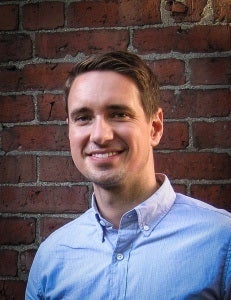
Scott Hadland, MD, MPH, Master of Science Graduate (SM1), HPM
Scott, raised outside Vancouver, Canada, is a part-time student in the SM1 program in Health Policy and Management. Scott is currently a Clinical Fellow in Adolescent Medicine at Boston Children’s Hospital and a Research Fellow in the Harvard-Wide Pediatric Health Services Research Fellowship. Prior to this, he was Chief Resident in the Boston Combined Residency in Pediatrics, completed his pediatrics residency training at Boston Children’s Hospital and Boston Medical Center, and studied medicine at Washington University in St. Louis. During medical school, he completed an MPH in Epidemiology and Biostatistical Methods at the Johns Hopkins Bloomberg School of Public Health. Since 2007, when he began collaborating with the Urban Health Research Institute in Vancouver, Scott has conducted and published research on health issues of marginalized street youth, particularly around injection drug use and infectious disease and mental health outcomes.
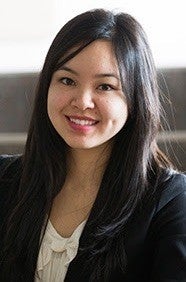
Rosemary Phu, 2016 Master of Science Graduate (SM2 – Management Track), HPM
Rosemary Phu is a first year Health Policy and Management master’s student, pursuing Health Communication and Public Health Leadership concentrations. Her passion for increasing health equity and achieving social justice is at the heart of her work. Prior to joining HSPH, she worked in quality improvement at the California Health Care Safety Net Institute assisting California’s 21 public health care systems in delivery system reform. She designed and implemented programs to spread evidence-based primary care innovations, increase inpatient safety, and improve the patient-family experience in public hospital systems. Rosemary has managed several grants from the Agency for Healthcare Research and Quality, California Healthcare Foundation, and Blue Shield of California Foundation. She has led workshops on patient engagement and presented to clinical leaders on promoting and advancing culturally competent care, particularly for low-income and uninsured individuals within California’s racially and ethnically diverse population.
Rosemary is interested in the integration of management, policy, quality and finance to increase health care efficiency and effectiveness and improve patient outcomes. She earned her B.S in Business Administration from the Haas School of Business at the University of California, Berkeley.
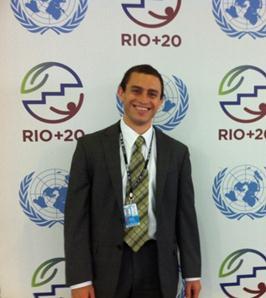
Michael Chaitkin, 2015 Master of Science (SM2 – Management track), HPM
Michael Chaitkin is a project manager, policy analyst, and diplomat with experience in global health, sustainable development, international security, and cross-cultural education. He served as Special Assistant to the World Bank’s Chief Economist for Sustainable Development, coordinating a $1M green growth research and knowledge-sharing program, organizing international workshops, and shaping inputs into multilateral fora like the G20’s Development Working Group and the UN’s post-2015 discourse. In 2009-10 Michael was a Luce Scholar in Beijing, China, where he consulted for a graduate program and lectured on nuclear- and energy-related tensions in Sino-US relations at Renmin University. Michael received his B.A. in International Relations from Stanford University in 2008. His undergraduate thesis on economic sanctions received the William J. Perry Award for Excellence in Interdisciplinary Research and was published by NYU’s Center on International Cooperation.

Yoni Dvorkis, 2015 Master of Science (SM2 – Policy Track), HPM
Yoni was a part time student in the policy track of the SM2 program in Health Policy and Management, which he began in the Fall of 2011. In addition to completing his Masters Degree, Yoni works full time at the Harvard University Health Services (HUHS) as a Financial Data and Reporting Analyst, where he provides analytic support to HUHS in its various initiatives, such as Patient Centered Medical Home (PCMH) and Meaningful Use Certifications. Yoni developed and currently administers a comprehensive claims database which supports HUHS in key functions including financial operations, health policy planning, and clinical best-practice initiatives. Prior to attending HarvardChan and working at HUHS, Yoni was a Healthcare Data Analyst for a disease management consulting firm. He is interested in medical informatics and how data analytics supports various aspects of the health care delivery system, such as the implementation of ACA health reform initiatives in Massachusetts and the US. Yoni received a Bachelor of Arts in Mathematics with a Minor in Economics from Tufts University in 2005. Born in Israel, his family moved to the United States when he was five years old.
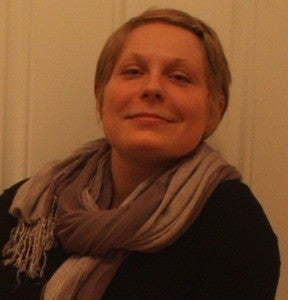
Katherine Heflin, 2015 Master of Science (SM2 – Policy Track), HPM
Katherine, raised in Silver Lake, Kansas, was in the Health Policy and Management department and completed the Women, Gender, and Health (WGH) Concentration. While at HarvardChan, Katherine did work at The Fenway Institute and the U.S. Department of Health and Human Services, in ASPE’s Health Policy Office. She was working for the Harvard Center on Population and Development. Katherine also did her Applied Research Project (ARP) on elderly healthcare access in Massachusetts. The ARP project is with HPM’s own Nancy Turnbull, Associate Dean for Professional Education, as well as the Blue Cross Blue Shield of Massachusetts Foundation. Before HarvardChan, Katherine worked in the San Francisco Bay Area and Washington, D.C. in the domains of human rights, sexual and reproductive health, domestic violence, and low-income access to legal services.
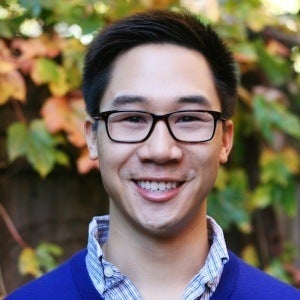
Kevin Nguyen, 2015 Master of Science (SM2 – Policy Track), HPM
Prior to attending HarvardChan, Kevin worked for three years as a health policy analyst in the Health Care Quality and Outcomes Program at Research Triangle Institute (RTI) International. At RTI, Kevin’s work focused on implementation of Affordable Care Act programs, including the measurement and evaluation of quality of care provided to long-term care patients. While at HarvardChan, Kevin served as the Student Ambassador for the HPM department, as well as a research assistant for Drs. Anna Sinaiko and Benjamin Sommers.
Following graduation, Kevin would like to continue a career in research and to use data to inform policies that improve quality and accessibility of care for underserved populations. Kevin grew up in North Carolina, and earned a BSPH in Health Policy & Management from the University of North Carolina at Chapel Hill Gillings School of Global Public Health.
Meagan Owen, 2015 Master of Science (SM2 – Management track), HPM
Winnie Wang, 2015 Master of Science (SM2 – Management track), HPM
Winnie was pursuing the management track in the SM2 Health Policy & Management program. Prior to attending HarvardChan, she worked in Washington DC at Mathematica Policy Research on projects related to primary care, Medicare Advantage, and essential health benefits under the Patient Protection and Affordable Care Act. One of her main projects at Mathematica was on the patient-centered medical home (PCMH), for which she worked collaboratively with the Agency for Healthcare Research and Quality (AHRQ) to develop a summary of the evidence base on the PCMH, to refine the model, and to develop new approaches to deliver and evaluate the model. Winnie continues to be deeply committed to the field of primary care and hopes to pursue a career that will transform primary care when she graduates.
As an Academic Innovations Collaborative intern, Winnie helped Cambridge Health Alliance’s Primary Care Center (PCC) implement a complex care management program and analyze inappropriate and appropriate use of the emergency department by PCC’s patients. Winnie is also a recipient of Harvard Medical School’s Abundance Agents of Change Challenge Grant and worked with her team to integrate Tai Chi workshops into Bowdoin Street Health Center to reduce fall risk in the elderly. Originally from Taiwan, Winnie grew up in Maryland and earned a B.A. in Economics and Health & Societies from the University of Pennsylvania.
Melina Ward, 2015 Master of Science (SM2 – Management track), HPM
Melina was a second year student in the management track of the HPM SM2 degree program. Prior to HarvardChan, Melina worked at John Snow, Inc. (JSI), a public health research and consulting firm in Boston dedicated to improving the health of vulnerable populations in the US and abroad. In JSI’s Health Services division, she was responsible for tracking the impact and implementation of the Affordable Care Act to guide JSI’s business development efforts. In addition, she worked on a number of client projects ranging from studying best practices in order to reduce avoidable hospital readmissions among the Medicaid population to conducting a cross-site evaluation of practices in Maine integrating mental health and primary care. While at JSI and HarvardChan, Melina has served on the Executive Board of Boston Young Healthcare Professionals, an organization dedicated to connecting healthcare professionals in the Boston area to develop strong cross-sector relationships and knowledge.
Drawing upon these experiences, Melina is interested in the intersection of research, policy and management to study and implement innovative solutions to improve access to quality and coordinated care for high-risk patient populations. Melina completed coursework in both the policy and management tracks, focusing on ways to spread best practices that have the potential to improve quality and lower cost within start-up and more traditional health system settings. At HarvardChan she was actively engaged in the Harvard Innovation Lab and was a Research Assistant studying outcomes of the ACA.
Marie Dunn, 2014 Master of Science (SM2 – Management track), HPM
Marie has a deep interest in innovation in health care and, specifically, the future of health information technology. At Harvard, she has assembled an interdisciplinary curriculum from courses at not only the School of Public Health, but the business, law, and public policy schools to gain perspective on current topics in health & technology strategy. She has further tailored her degree through a range of research projects and by completing her practicum at Partners HealthCare within their Population Health Management group. Marie is a teaching assistant for Drs. Lucian Leape and Ashish Jha’s Health Care Quality and Safety Course, and also serves as a Co-President of the HSPH Women in Leadership Student Organization.
Prior to Harvard, Marie worked for five years at The Advisory Board Company, a health care research & consulting firm located in Washington, DC. In this role, she conducted health care research in a wide range of terrains, including strategic planning, cost control, and quality improvement. As one of the firm’s health IT experts, she helped to launched and lead a consulting service that guided chief information officers on how to adopt electronic health records in line with regulatory requirements and other strategic mandates.Marie has a B.A. from the University of Virginia in Economics and Comparative Literature.

Tari Owi, 2014 Master of Science (SM2 – Management track), HPM
Prior to attending the Harvard T.H. Chan School of Public Health, Tari Owi worked as a Research Analyst at Thomson Reuters (now Truven Health Analytics) Healthcare & Science outcomes research department. At Reuters, Tari was responsible for data analysis and coordinating project teams made up of researchers, statisticians, economists, and analysts working primarily on cost modeling and treatment pattern outcomes projections for pharmaceutical clients and Fortune 500 firms. Tari also worked for the Director of Health Information Exchange at the Office of the National Coordinator (ONC) for Health Information Technology in the Office of the Secretary at the United States Department of Health and Human Services. At ONC, Tari staffed the Information Exchange Workgroup of the Health Information Technology Policy Committee, as well as worked directly with state health departments using electronic medical records at immunization registries and critical access hospitals. Since beginning at HSPH, Tari has continued to work in the health IT space as a research assistant for Health IT expert and Associate Professor Dr. Ashish Jha. Tari holds a BA in Political Science with an Interdisciplinary Concentration in Health Politics and Policy from Yale University.
Claire Perkins, 2014 Master of Science (SM2 – Policy track), HPM
Claire was a Masters student in the Department of Health Policy and Management (HPM), focusing on Health Policy and Public Health Leadership. In addition, she works part time as Research and Consulting Intern at John Snow Inc., focusing on projects in domestic policy analysis and implementation of the Patient Protection and Affordable Care Act. She also serves as the Staff Assistant for the HSPH Center for Public Health Leadership, and is the founder and Co-Director of the annual HSPH Youth and Public Health Conference. Claire has also enjoyed TAing several classes this year, including US Health Policy and Public Health Leadership, is an enthusiastic player of intramural sports, and attempts to attend as many as possible of the amazing speakers and events that Harvard and the surrounding community have to offer. This past summer Claire worked at USAID, at the Center for Accelerating Innovation and Impact, as part of their Global Health Fellows Program where she explored her interest in the way private sector models can be adapted to help promote the scale-up and development of high impact innovations in the area of reproductive and maternal health.
Before HSPH Claire was part of the Global Health Corps Fellowship program, working as a Health Literacy Consultant at UMDNJ’s University Hospital in Newark, NJ. She remains active in the GHC community, and is a Co-Founder and Chair of their Boston Alumni Chapter. Prior to that she worked at UCSF’s AIDS Health Project, on their Trainings and Publications teams. She received a B.A. in Public Policy Analysis with a focus in Medical Anthropology from Pomona College in 2010. In her free time Claire enjoys word games, potlucks, bad political humor, and pretty much any kind of outdoor or athletic activity.
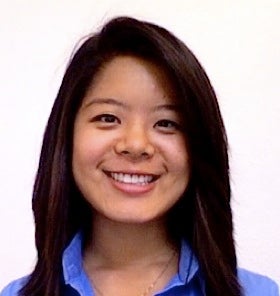
Emilie Song, 2014 Master of Science (SM2 – Management track), HPM
Prior to graduate school, Emilie obtained her B.S. in Psychobiology and Minor in Public Health from UCLA. She then joined ZS Associates in San Francisco, where she focused on quantitative and qualitative market research in oncology to improve understanding of trends in share, drivers of physician behavior, and patterns of product use. She also restructured the early stages of a reimbursement experience tracker for a pharmaceutical company and identified innovative marketing strategies that would resonate in the health care space. Emilie is passionate about developing effective and innovative ways to manage chronic disease. She is interested in the potential of data-driven health care, particularly in the medical device space. During her time at Harvard, she worked for a start-up developing a tech-based education delivery platform, focusing on addressing patient health literacy to improve disease management. She also spent her summer with a global medical device company, developing business models for diabetes devices against a backdrop of changing reimbursement, pricing, and regulatory conditions.
Emilie describes coming to the Harvard T.H. Chan School of Public Health as an incredible experience: “Beyond academics, HSPH brings together people who are constantly looking for ways to improve health care from every perspective. What we learn in the classroom is directly applicable to conversations and ideas about how to bring positive change to the system. The faculty and students are a wealth of information and are open to sharing their thoughts and experiences.” After her time at HSPH, Emilie says she hopes to “take part in the health care revolution, with the intent on improving health outcomes through increasing patient engagement and improving chronic disease management.”
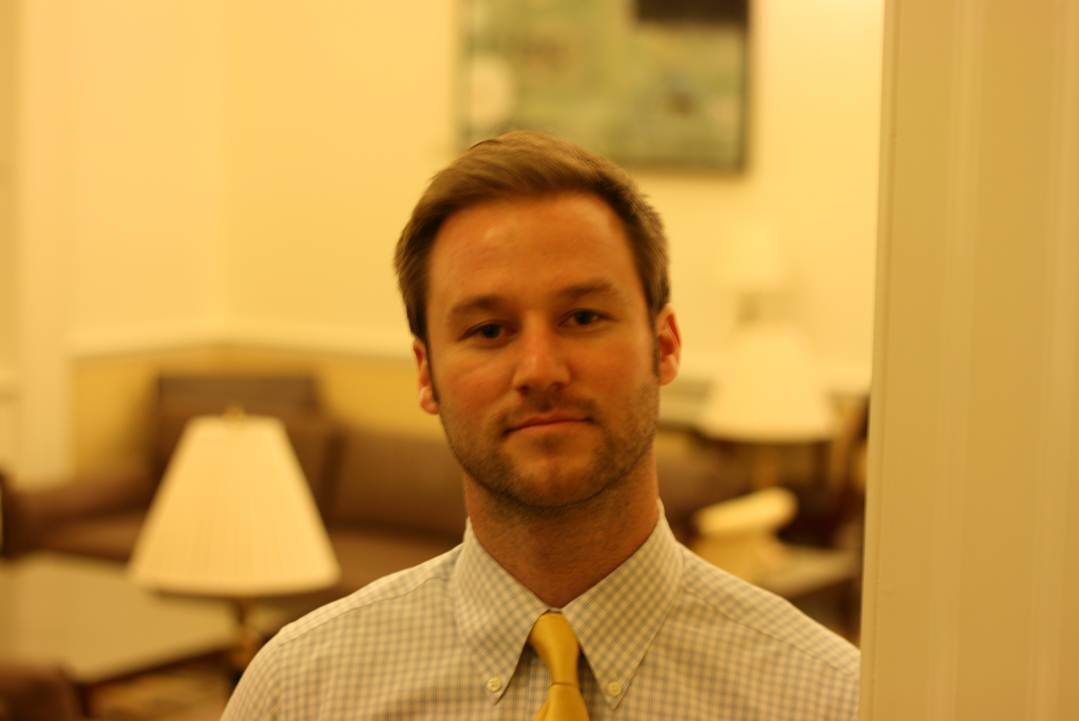
Brian Walker, 2014 Master of
Science (SM2 Management track), HPM
Brian Walker was a student in the Health Policy and Management program at HSPH. After graduating from Brigham Young University with a BS in Business Management, Brian worked for The Boston Consulting Group and Ridgemont Equity Partners. Passionate about entrepreneurial health care ventures, he left the world of financial services in 2010 to start a pediatric surgery center in Houston, Texas. After filing formation documents, Brian proceeded through the steps of surgery center development: architectural modifications, equipment and supply purchasing, CMS and state survey preparation, policy and procedure implementation, and physician recruitment. As Chairman and CEO, Brian often observed the preparation, surgery, and recovery of the young patients at his center, which led him to seek out current and evidence-based research in quality improvement and patient safety. Harvard University’s involvement in the development of the safe surgery checklist prompted him to search for an academic program that would allow him to learn directly from these experts. When visiting HSPH and speaking with the Health Policy and Management Department, Brian was impressed with the relevance and practical nature of the program. As a current student, Brian is focused on finding safer and more efficient ways to provide health services and plans to continue a career in health care entrepreneurship upon graduation in 2014.
Jessica Walradt, 2014 Master of Science (SM2 – Policy track), HPM
Prior to attending HSPH, Jessica worked as a health policy analyst for a boutique policy and political consulting firm in Washington, DC. There, she helped providers navigate the federal and regulatory landscape by providing information and analyses pertaining to Medicare and Medicaid reimbursement policies and implementation efforts surrounding the Affordable Care Act. At HSPH, Jessica has enjoyed enhancing her analytical skills and learning about the drivers of health care expenditures. She also serves as a teaching assistant for economic and policy classes and is a member of the Women in Leadership Executive Board. During this time, Jessica has also pursued various professional opportunities. The summer before her second year, Jessica interned at the White House Office of Management and Budget where she helped the Medicaid Branch tackle issues pertaining to long-term care. She now interns for the Government Payer Strategy division of Partners HealthCare.